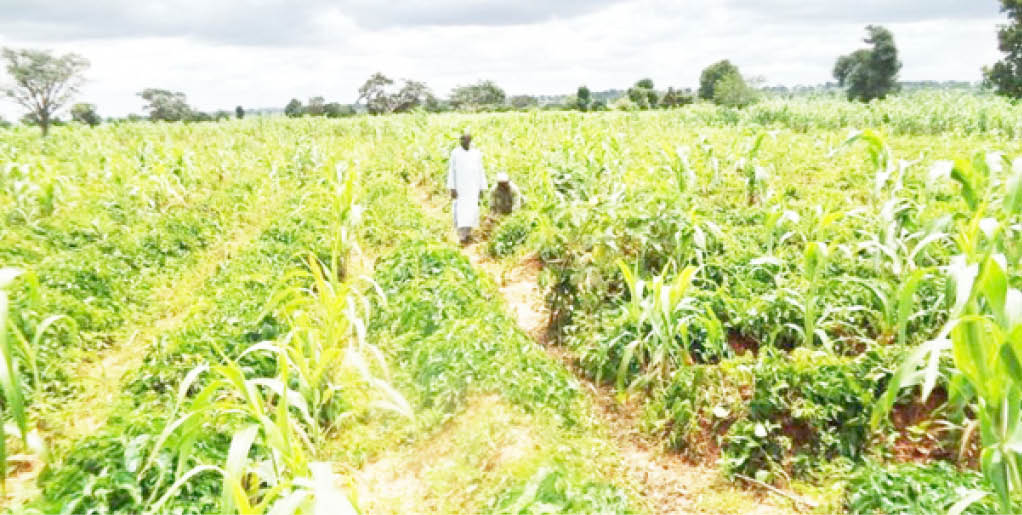It describes it as “an economic activity concerned with the processing of raw materials and manufacture of goods in factories”.
The second meaning is “hard-working”.
Fraud in our environment has attained both meanings due to the complexity of its proportions – the inputs being used to create fraudulent products and the illustriousness of fraudsters in devising new methods once existing ones are busted by the targeted people or police.
Methods used
The most common practices were money multiplication prayers; envelopes “full of cash” dropped in front of the target and to be shared between the target and the fraudster in a secluded location, and cheap merchandise apparently obtained as a bonus from an employer’s shop.
- NAQS signs phytosanitary protocol with Mexico to attract $3bn annually
- Police arrest herbalist over fraud, possession of fake dollars
The methods have evolved to correspond to technological advances, especially in the last two decades.
The digital space and technology have provided fraudsters with a plethora of scamming opportunities.
This is complicated in the fraudsters’ favour by the rapid changes consistent with digital communication technology and equipment.
We must, however, always remember that the mind of the fraudster works in a very predictable manner.
First, there is extreme confidence or sympathy-seeking. These work to influence the target to believe in the validity of a fraudster’s proposition.
A second aspect is the need or greed of the target that makes a person vulnerable to the fraudster’s offer.
Then there is a threat to the target, again making him or her vulnerable.
The foregoing parameters summarise the thinking of the average fraudster.
She will always package her proposition in terms of language, demeanour and physical product presentation to appeal to her perceived profile of the target.
Fraudsters generally do lots of research on their individual targets and the general market where they plan to select their targets.
That is a major reason they will always get people to con before they are busted.
I have chosen this subject to share my experiences as a livestock industry service provider and my interaction with farmers.
I get three key scam attempts in the course of my work. First are consultancy service opportunities mainly from apparently government projects and livestock cooperatives.
The scheme is always similar; that I or my company has been selected to provide a single sourcing contract to supply products or services at lucrative preferential prices.
I should send my documents to a stated person but the panellists will require a stated facilitation amount to be sent via a given phone number.
My response is always that the chief executive officer should communicate officially.
That trashes a proposition immediately but they never stop coming.
Another form is fraudsters who say they have very wealthy employers where they can make lots of money and we share with the fraudster because the employer trusts her completely.
However, I must send some money to the farm manager first so that she can leave all service call decisions to the caller.
Again, my response is that as an employer, I deal with other employers, not employees.
Finally, I get calls to authenticate animals digitally, after being sent pictures and recommend them as high yielders at a good fee.
Here, I quote professional ethics that require my animal certification be physical and historical according to its verifiable documented records.
Once a fraudster asked me in frustration: “If all of you are like this, what do you think we shall eat?”
The last con method brings me to caution livestock farmers.
It is not enough for you to be sent a picture of animals or products claimed to have been validated by some authority and buy the items online.
All authorities, whether institutional or individual, have a way of being verified either through their offices or government regulators.
For instance, a veterinary doctor who certifies the quality of an animal must be licensed to practise and be retained in the register for the current year by the Kenya Veterinary Board.
I am in several livestock farmers’ digital groups. The number of fraud incidents reported in the groups have rapidly increased in the last two years.
In one recent case, a farmer paid a deposit for pure jersey cattle that she was told were in high demand.
There was no guarantee of getting one if she did not pay the deposit. A casual look at the pictures confirmed to me they were extracted from the internet. I advised the farmer to report the matter to the police.
An ongoing scam concerns a fodder crop called “Super Napier” or Pakchong1.
The plant is fairly new in the country and farmers are looking for it.
Beware where you get your seed stock from to avoid being scammed with ordinary Napier.
SOURCE: The Nation of Kenya: Seeds of Gold




